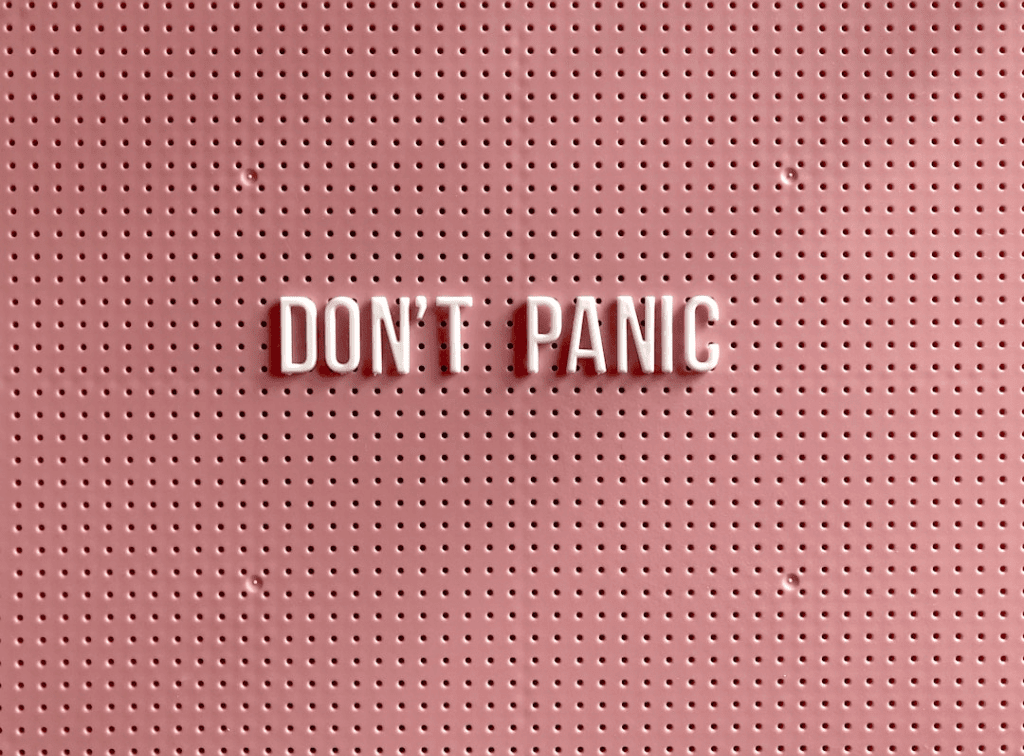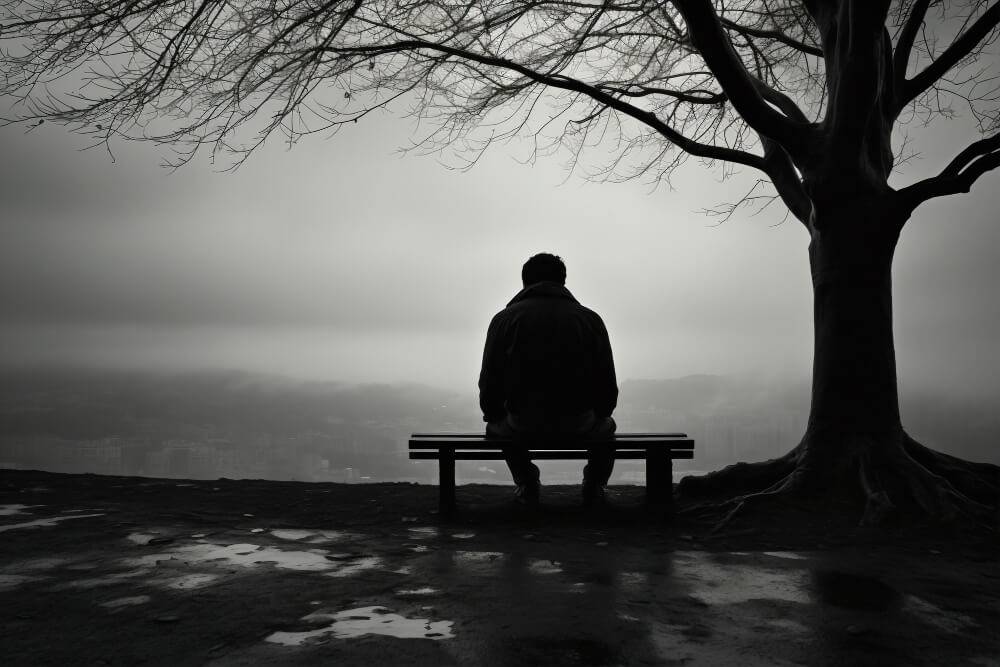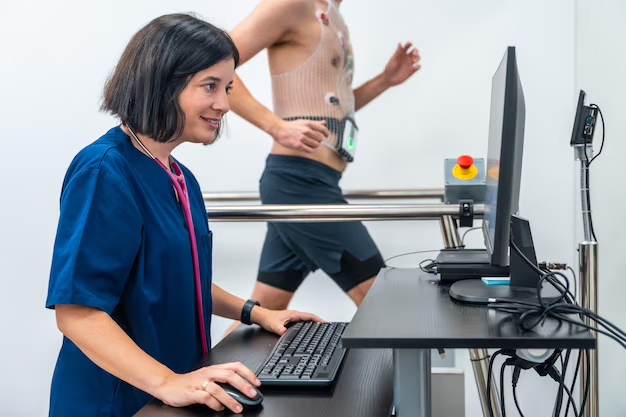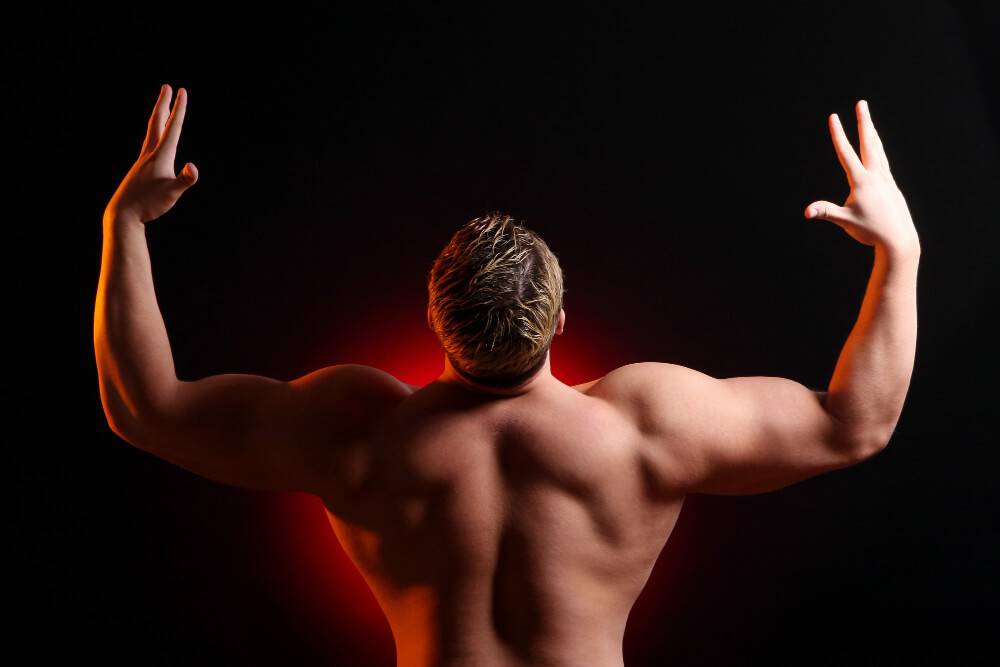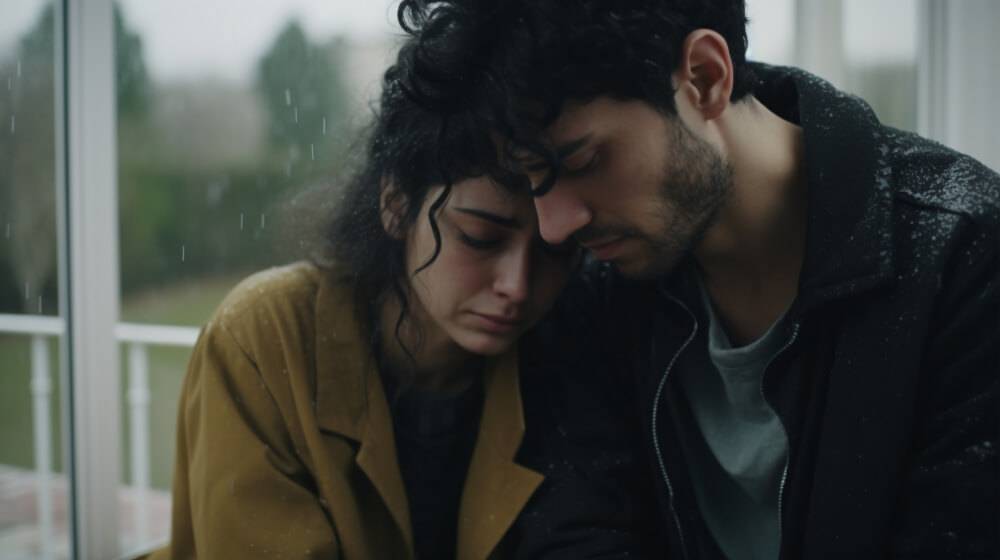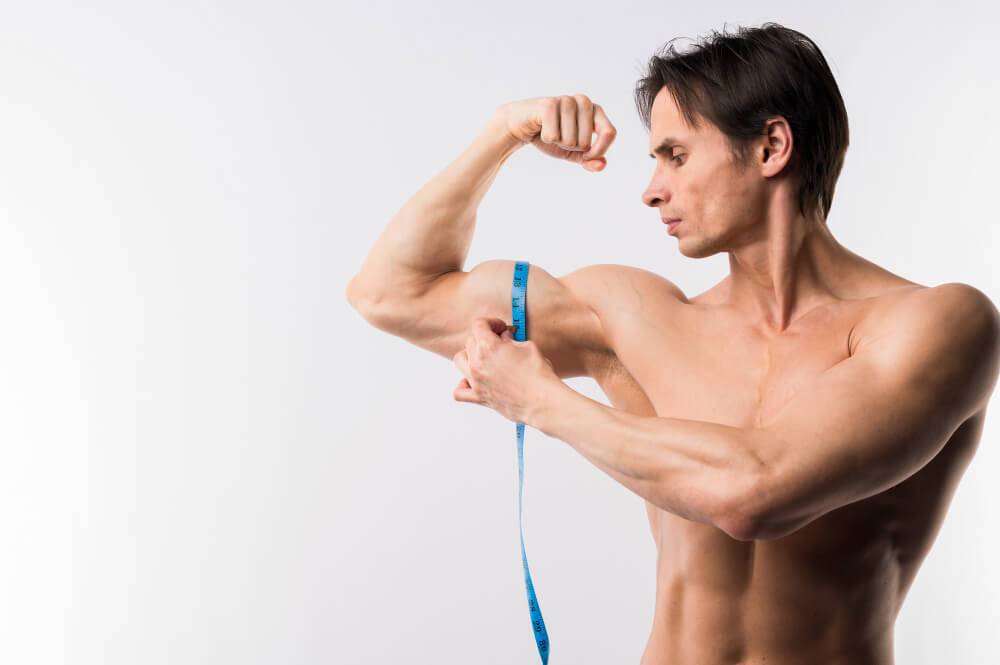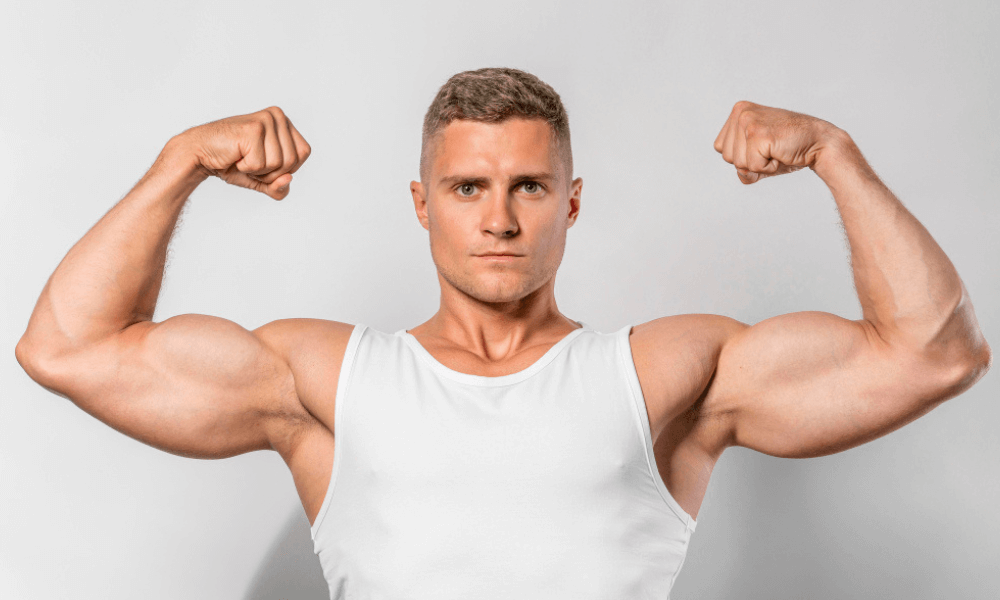Anxiety chills are more than just an inconvenience; they are a physical manifestation of mental distress that can impact your daily life.
Whether you’re in the middle of an important meeting or trying to enjoy a quiet evening at home, these chills can strike at any moment, leaving you feeling helpless and frustrated.
In this blog post, we’ll explore how to stop anxiety chills and provide you with practical strategies to manage this unsettling symptom. Our goal is to help mental wellness seekers and anxiety sufferers find relief and regain control over their lives.
Make an appointment today! Visit here.
What Are Anxiety Chills?
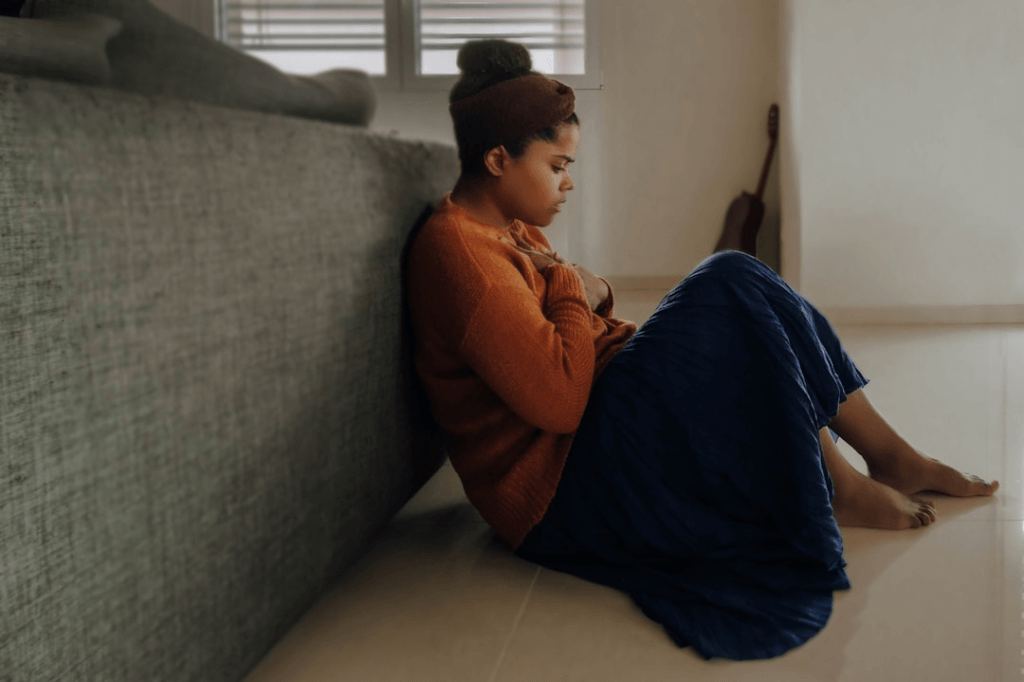
Anxiety chills are sudden, intense feelings of cold that often accompany episodes of anxiety or panic attacks. These chills can make you shiver uncontrollably and feel as if your body temperature has plummeted. Understanding the nature of anxiety chills is the first step toward managing them effectively.
The Science Behind the Chills
Anxiety chills occur due to a combination of physiological and psychological factors. When you’re anxious, your body enters a “fight or flight” mode, releasing stress hormones like adrenaline.
This hormonal surge can cause blood vessels to constrict, lowering skin temperature and resulting in chills. Additionally, the psychological impact of anxiety can amplify these physical sensations, making them feel even more intense.
How They Feel

Experiencing anxiety chills can be unsettling. You might feel a sudden rush of cold accompanied by goosebumps and shivering. Depending on your anxiety levels, these chills can last for a few minutes or persist for longer periods.
Recognizing Triggers :
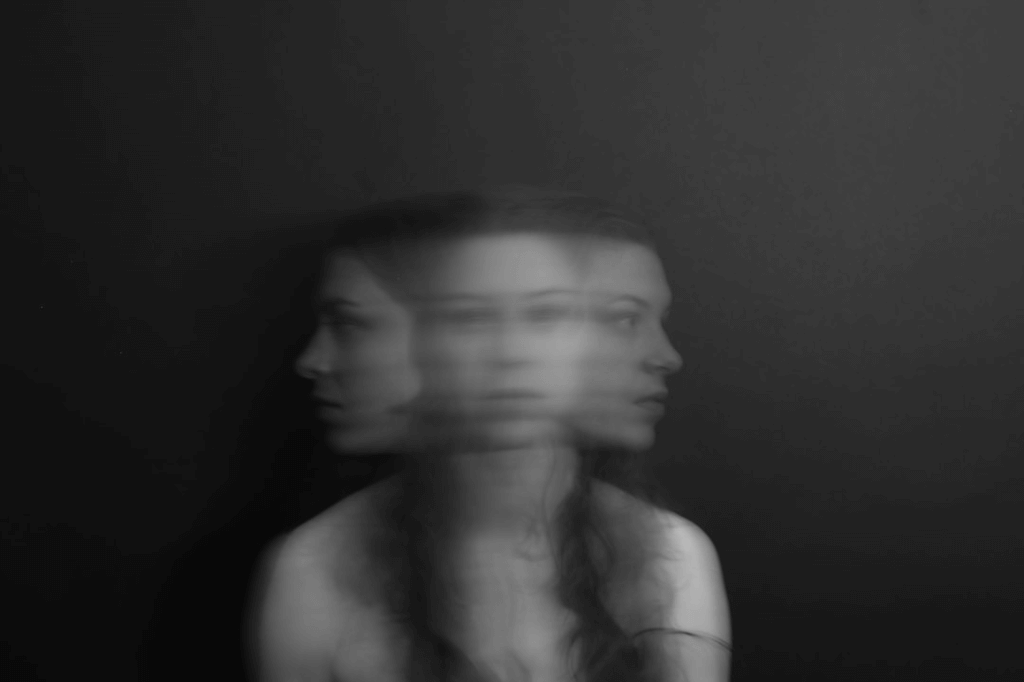
Identifying the triggers that cause your anxiety chills is crucial for managing them effectively. Triggers can vary from person to person, but some common factors can contribute to the onset of anxiety chills.
Environmental Triggers
Environmental factors like sudden changes in temperature, noise levels, or crowded spaces can trigger anxiety chills.
For instance, walking into a cold room or experiencing loud noises can set off your anxiety and, consequently, the chills.
Social Triggers
Social situations such as public speaking, meeting new people, or attending social gatherings can also trigger anxiety chills.
The fear of being judged or scrutinized can heighten your anxiety, leading to physical symptoms like chills.
Personal Triggers
Personal factors such as past trauma, ongoing stress, or specific phobias can contribute to anxiety chills.
Understanding your personal triggers can help you develop targeted strategies to manage them.
Stressful Situations
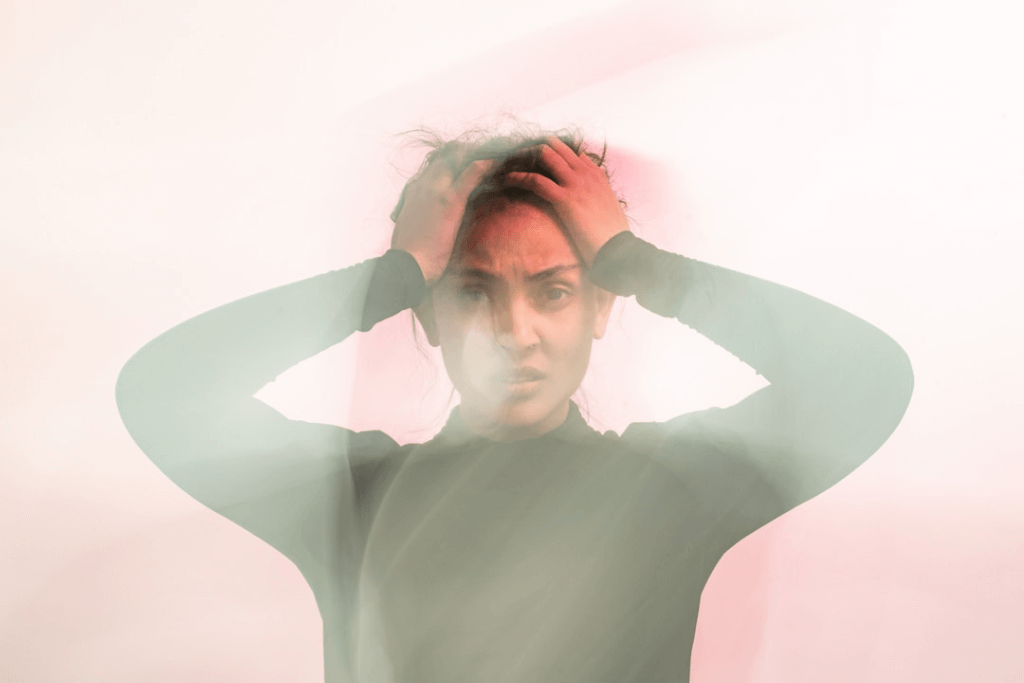
High-pressure environments such as work deadlines, public speaking engagements, or major life changes can trigger anxiety and, consequently, anxiety chills.
Recognizing these stressful situations can help you prepare and manage your reactions more effectively.
Caffeine and Stimulants
Consuming large quantities of caffeine or other stimulants can exacerbate anxiety symptoms, including chills.
These substances can increase your heart rate and elevate stress hormone levels, leading to a heightened state of anxiety.
Lack of Sleep
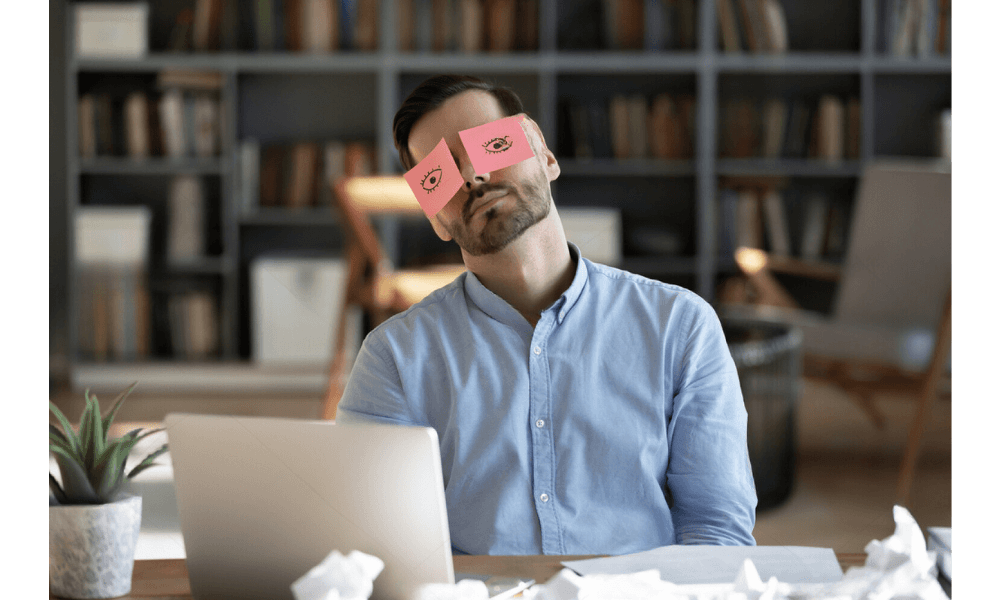
Inadequate sleep can significantly impact your mental and physical health. Sleep deprivation can make you more susceptible to anxiety and its physical manifestations, including chills.
Ensuring you get enough restful sleep is essential in managing anxiety.
Social Interactions
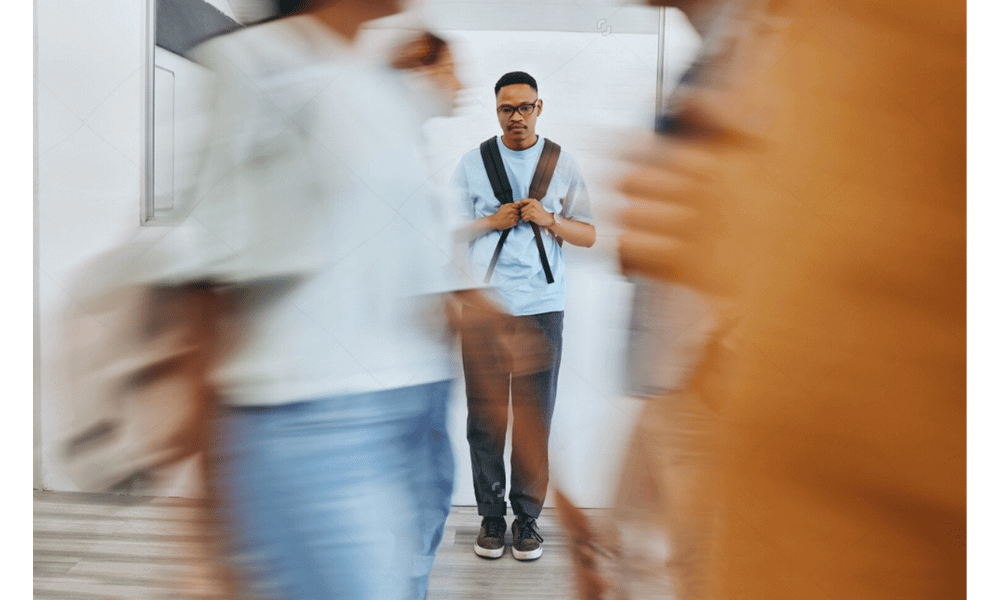
Interactions that require significant social engagements, especially in unfamiliar settings, can trigger anxiety in some individuals.
These situations can lead to heightened nervousness and the onset of anxiety chills.
Health Concerns
Worrying about your physical health or experiencing health-related issues can also be a trigger. The anxiety stemming from health concerns can manifest physically, causing chills and other anxiety symptoms.
Recognizing and understanding these common triggers can be the first step towards developing effective strategies to manage and mitigate the occurrence of anxiety chills.
How to Stop Anxiety Chills?
Managing anxiety chills requires a multi-faceted approach that includes coping mechanisms, self-care practices, and lifestyle adjustments. Here are some effective strategies to help you stop anxiety chills.
Relaxation Techniques
Practicing relaxation techniques can help calm your mind and reduce the intensity of your anxiety chills. Deep breathing exercises, progressive muscle relaxation, and guided imagery are all effective methods for promoting relaxation and easing physical symptoms.
Self-Care Practices
Engaging in self-care activities that promote relaxation and stress management can reduce anxiety chills. These can include taking a warm bath, practicing yoga or gentle stretches, listening to calming music, or engaging in a hobby you enjoy.
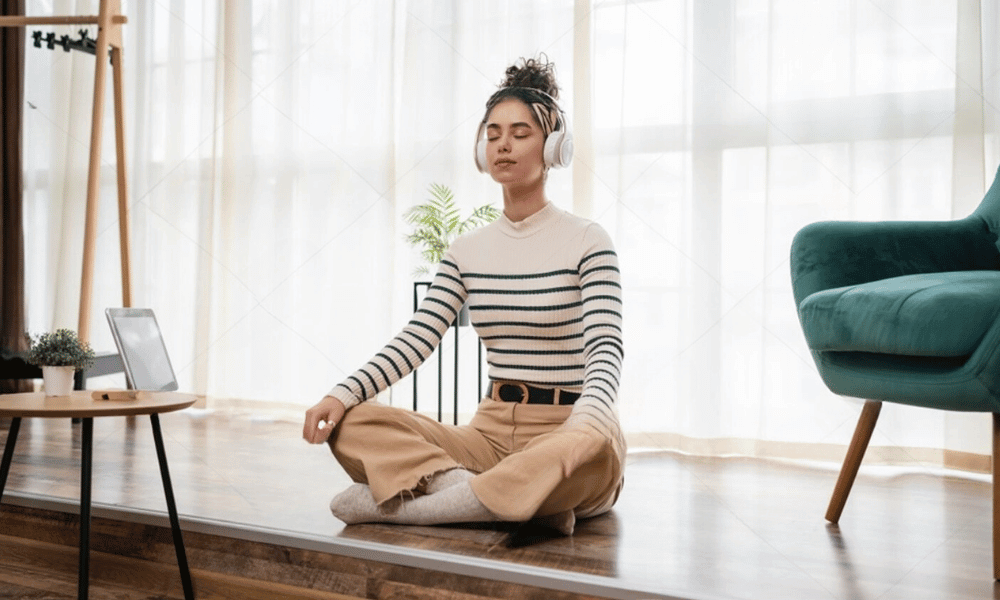
Warm Baths
Taking a warm bath can help relax your muscles and soothe your mind. The warmth of the water can also counteract the chills, helping to regulate your body temperature.
To enhance the calming effects, consider adding lavender or chamomile essential oils, which are known for their relaxing properties.
Yoga and Gentle Stretches
Yoga and gentle stretching exercises can help release physical tension and promote mental calmness. Practices such as Hatha yoga or restorative yoga focus on slow, deliberate movements and deep breathing, which can reduce anxiety and prevent chills.
Incorporating these routines into your daily schedule can provide long-term benefits for managing anxiety.
Calming Music
Listening to calming music can significantly influence your mood and reduce anxiety levels. Create a playlist of soothing tracks, such as classical music, nature sounds, or ambient tunes, and listen to it whenever you feel anxious.
Music therapy has been shown to lower heart rate and blood pressure, helping to mitigate the physical symptoms of anxiety, including chills.
Hobbies and Creative Outlets
Engaging in hobbies or creative activities you enjoy can be a great way to distract your mind from anxious thoughts.
Whether painting, knitting, gardening, or playing a musical instrument, these activities can provide a sense of accomplishment and joy and reduce overall stress levels.
Mindfulness and Meditation
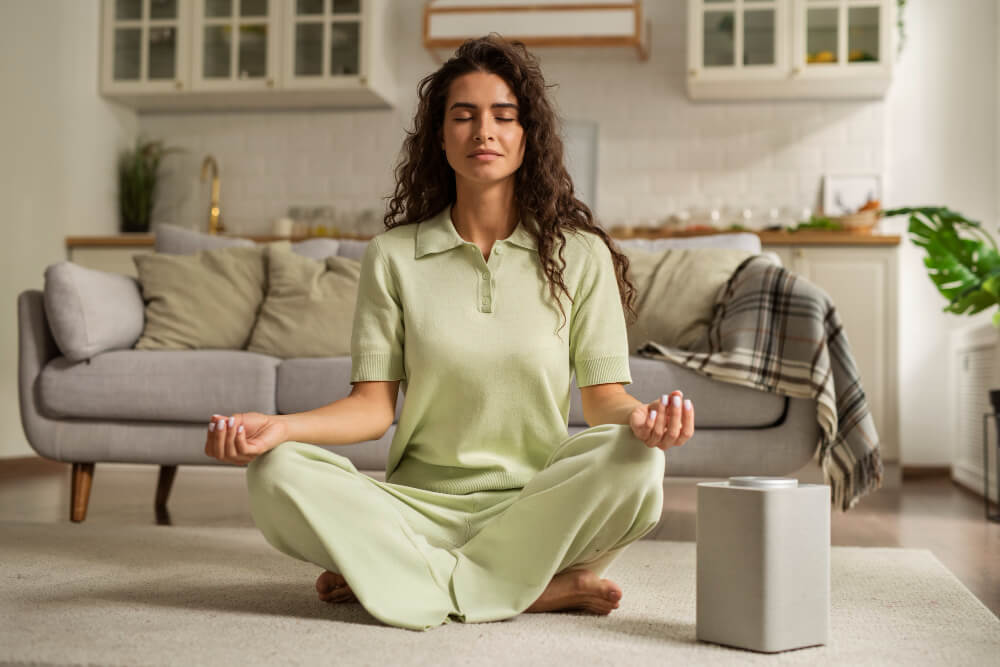
Practicing mindfulness and meditation can help you stay grounded in the present moment, reducing anxiety’s impact.
Techniques such as mindful breathing, body scans, or guided meditations can enhance your awareness and help you manage stress more effectively. Regular practice can improve your resilience against anxiety triggers that cause chills.
By integrating these self-care practices into your daily routine, you can create a supportive environment for mental and physical well-being, helping reduce the frequency and severity of anxiety chills.
Grounding Techniques
Grounding techniques can help you stay present and reduce the impact of anxiety chills. These techniques help divert your focus from the feelings of anxiety to the present moment, helping to disrupt the cycle of stress and physical discomfort.
5-4-3-2-1 Technique
This popular grounding exercise involves engaging your five senses to return your focus to the present. To perform this technique:
- 5 – Look around and name five things you can see.
- 4 – Find four things you can touch and actually touch them, noticing their texture.
- 3 – Identify three different sounds you can hear.
- 2 – Take note of two things you can smell.
- 1 – Focus on one thing you can taste, perhaps a drink or a piece of food.
This exercise actively involves your senses and can help reduce the intensity of anxiety chills by anchoring your attention at the moment.
Mindful Breathing
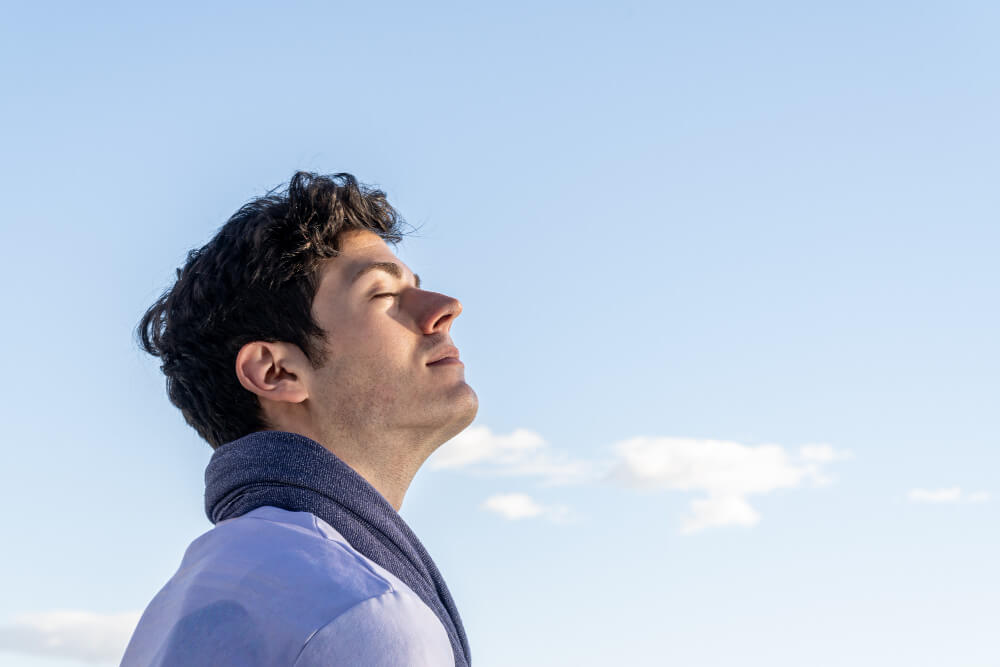
Mindful breathing involves paying close attention to your breath, helping to regulate your nervous system and reduce anxiety symptoms. To practice mindful breathing:
- Find a comfortable, seated position.
- Close your eyes and take a deep breath in through your nose, allowing your abdomen to expand.
- Slowly exhale through your mouth, focusing on the sensation of the breath leaving your body.
- Continue this pattern, counting each inhale and exhale, and try to reach a count of ten cycles.
This deliberate focus on your breath helps shift your mind away from anxious thoughts and bodily sensations, potentially reducing the occurrence of chills.
Cognitive Behavioral Techniques
Cognitive Behavioral Therapy (CBT) involves techniques that can help modify negative thought patterns contributing to anxiety and its physical manifestations.
Cognitive Restructuring
Cognitive restructuring involves identifying and challenging irrational or negative thoughts that trigger anxiety. To practice cognitive restructuring:
- Write down the specific thoughts that occur when you feel anxious chills starting.
- Evaluate these thoughts logically and question their validity – Are they based on facts or assumptions?
- Replace negative or irrational thoughts with more balanced and rational statements.
For instance, if the thought “I can’t handle this meeting, I will fail” triggers anxiety, challenge it by asking, “What evidence do I have that I will fail? Have I succeeded in similar situations before?” This approach helps reframe your mindset and reduce anxiety’s impact on your body.
Environmental Adjustments

Making adjustments to your environment can also play a significant role in managing anxiety chills. These can include:
- Avoiding caffeine and other stimulants.
- Creating a calming and clutter-free living space.
- Reducing exposure to stressful situations or triggers.
By creating an environment that promotes relaxation and eliminates potential triggers, you can reduce the frequency of anxiety chills.
Lifestyle Adjustments
Making lifestyle adjustments can also play a significant role in managing anxiety chills. Regular physical activity, a balanced diet, and adequate sleep can improve your overall mental health and reduce anxiety symptoms. Additionally, limiting caffeine and alcohol intake can help prevent anxiety flare-ups.
A cornerstone of managing anxiety chills is integrating regular physical activity into your daily routine. Exercises such as jogging, swimming, yoga, or even a brisk walk can significantly enhance your mood by releasing endorphins, the body’s natural stress relievers.
Nutrition also plays a vital role in managing anxiety. Consuming a balanced diet rich in fruits, vegetables, whole grains, and lean proteins can stabilize your blood sugar levels, minimizing mood swings and anxiety. Staying hydrated and avoiding excessive sugar and processed foods can also help maintain a stable and calm nervous system.
Ensuring adequate sleep is another critical aspect of lifestyle adjustments for anxiety. Poor sleep can exacerbate anxiety levels, making it crucial to establish a consistent sleep schedule. Aim for 7-9 hours of quality sleep each night by creating a restful environment, avoiding screens before bedtime, and practicing relaxation techniques.
Limiting caffeine and alcohol intake can have a profound impact on anxiety management. Both substances can increase your heart rate and exacerbate anxiety symptoms, including chills. Opt for herbal teas or decaffeinated beverages whenever possible and monitor your intake of these stimulants to prevent unnecessary anxiety spikes.
Cold Exposure Habituation
Gradual exposure to cold temperatures in a controlled environment can help your body become accustomed to the sensation and reduce the shock response accompanying anxiety chills. This can be as simple as taking cold showers or spending short periods in a cold environment to build tolerance.
Benefits :
- Improved Blood Circulation – Exposure to cold temperatures can stimulate blood flow as your body works to maintain its core temperature, enhancing overall circulation.
- Increased Resilience – Regularly exposing the body to cold can build mental and physical resilience, making it easier to handle stressors, including anxiety.
- Enhanced Alertness – Cold showers or swims can trigger the release of adrenaline, which can improve alertness and mental clarity.
- Reduced Inflammation – Cold exposure can help reduce inflammation, which is beneficial for overall health and can minimize symptoms that may contribute to anxiety chills.
- Endorphin Release – The cold shock can lead to the release of endorphins, which are natural mood elevators and can reduce feelings of anxiety.
By incorporating these small, controlled doses of cold exposure into your routine, you can slowly build up your body’s tolerance, potentially diminishing the intensity of anxiety chills over time.
Herbal Remedies
Certain herbal remedies, such as chamomile, valerian root, and passionflower, have natural calming effects that can help reduce anxiety and its physical manifestations, including chills. Always consult with a healthcare professional before starting any herbal remedies to ensure they are safe and appropriate for you.
Social Support

Building a strong support network can significantly alleviate anxiety symptoms. Talking to friends, family, or support groups about your experiences can provide emotional relief and practical advice for managing anxiety chills. Knowing that you are not alone in your struggles can be incredibly comforting and empowering.
Foster Existing Relationships
Start by strengthening the relationships you already have. Spend quality time with friends and family, share your experiences, and be open about your struggles with anxiety.
Genuine conversations can deepen these bonds and create a more supportive environment.
Seek Professional Help
Therapists, counselors, and mental health professionals can be integral parts of your support network. They offer expert guidance and coping strategies that can help you better manage your anxiety.
Additionally, engaging with a professional can alleviate the burden on your personal relationships, ensuring they don’t become overwhelmed.
Build Online Connections
Online platforms and communities can also be valuable resources. Social media groups, forums, and websites dedicated to mental health can offer support and advice.
Just ensure that these online interactions are positive and constructive, avoiding spaces that might exacerbate your anxiety.
Be a Supportive Friend
Building a support network is reciprocal. Being there for others when they need help fosters mutual trust and strengthens relationships. This give-and-take dynamic ensures that your support network is robust and reliable when you need it most.
Implementing these strategies, along with the previously mentioned techniques, can provide a comprehensive approach to managing and reducing anxiety chills.
Seeking Professional Help
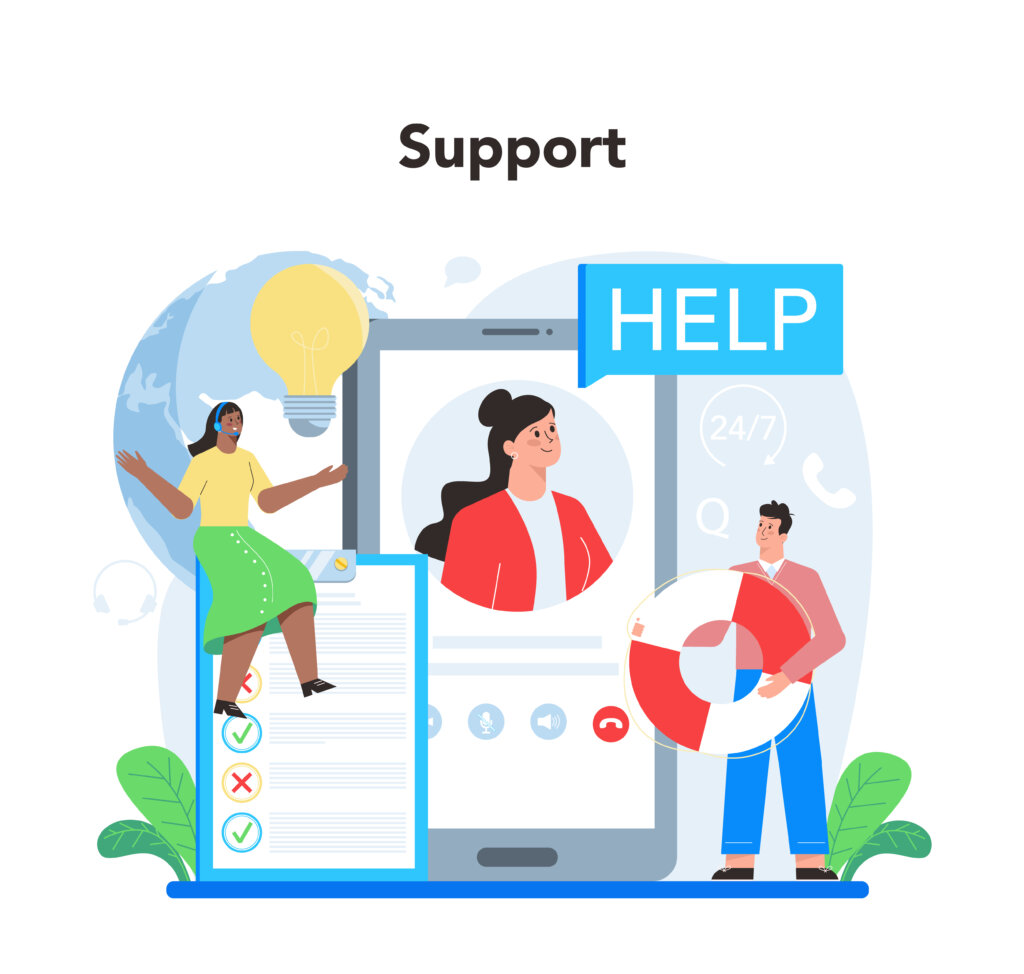
If your anxiety chills are severe or persistent, it’s essential to seek professional help. Consulting with mental health professionals can provide you with the support and treatment options needed to manage your anxiety effectively.
Finding the Right Support
Finding the right mental health professional can make a significant difference in managing your anxiety chills. Look for therapists or counselors who specialize in anxiety disorders and have experience working with individuals facing similar challenges.
Treatment Options
Treatment options for anxiety chills can include cognitive-behavioral therapy (CBT), medication, or a combination of both. CBT can help you identify and change negative thought patterns, while medication can help manage the physiological symptoms of anxiety.
Remember, everyone’s experience with anxiety is unique; what works for one person may not work for another. Exploring different strategies and techniques is essential to find what works best for you in managing anxiety chills.
Additionally, seeking professional help from a therapist or counselor can provide personalized support in developing effective coping mechanisms and managing your anxiety symptoms.
Real-Life Stories and Testimonials
Hearing from individuals who have successfully managed their anxiety chills can provide you with inspiration and practical insights. Here are some personal experiences that highlight effective strategies for coping with anxiety chills.
Sarah’s Story
Sarah struggled with anxiety chills for years, particularly during social situations. Through regular practice of mindfulness exercises and seeking support from a therapist, Sarah was able to reduce the frequency and intensity of her chills. Today, she feels more confident and in control of her anxiety.
John’s Experience
Stressful work environments triggered John’s anxiety chills. By incorporating relaxation techniques and making lifestyle adjustments, John found relief from his anxiety chills. He now enjoys a healthier work-life balance and improved mental well-being.
Emily’s Journey
Emily experienced severe anxiety and chills due to past trauma. With the help of cognitive-behavioral therapy and support from her therapist, Emily was able to address her trauma and develop effective coping mechanisms. She now feels more resilient and empowered in managing her anxiety.
At Last
Anxiety chills can be a challenging symptom to manage, but with the right strategies and support, you can find relief and improve your mental well-being. By understanding the nature of anxiety chills, recognizing your triggers, and implementing effective coping mechanisms, you can take proactive steps toward better mental health. Remember, seeking professional help is essential if your symptoms are severe or persistent. You can find more helpful articles on our Articles page.
For more information and resources on managing anxiety, consider exploring additional articles, joining support groups, or booking a session with a mental health professional. Taking these steps can help you regain control over your life and enjoy a more fulfilling, anxiety-free existence.
FAQs
1. What are anxiety chills?
Anxiety chills are a physiological response to anxiety and stress, where an individual experiences shivering or cold sensations despite the absence of an external cold environment. These chills are often accompanied by other anxiety symptoms such as rapid heartbeat, sweating, and muscle tension.
2. Why do anxiety chills occur?
Anxiety chills occur due to the body’s fight-or-flight response. When you experience anxiety, your body releases adrenaline, which increases your heart rate, blood circulation, and prepares your muscles for action. This heightened state can lead to shivering or chills as your nervous system reacts to perceived threats.
3. How can I differentiate between anxiety chills and other medical conditions?
While anxiety chills are directly related to stress and anxiety, chills can also be caused by other medical conditions like infections, hormonal imbalances, or neurological disorders. If you’re unsure whether your chills are anxiety-related, it’s crucial to consult a healthcare professional for a comprehensive evaluation.
4. What immediate steps can I take to manage anxiety chills?
To manage anxiety chills immediately, try deep breathing exercises, progressive muscle relaxation, or mindful meditation. Engaging in physical activity or using warming techniques, like wrapping yourself in a blanket, can also help alleviate the chills.
5. Are there long-term solutions for preventing anxiety chills?
Long-term solutions involve addressing the root cause of your anxiety through therapy, lifestyle changes, and possibly medication. Cognitive-behavioral therapy (CBT) is particularly effective in altering negative thought patterns. Regular exercise, a balanced diet, and adequate sleep also play crucial roles in reducing anxiety levels.
6. Should I seek professional help for anxiety chills?
Yes, seeking professional help is advisable, especially if your anxiety chills are severe, persistent, or interfere with your daily life. A mental health professional can provide a tailored treatment plan, including therapeutic techniques and possibly medication, to help you manage your symptoms more effectively.
7. Can lifestyle changes reduce the occurrence of anxiety chills?
Absolutely. Regular physical activity, healthy eating habits, adequate sleep, stress management techniques, and reducing caffeine and alcohol intake can significantly lower anxiety levels and subsequently reduce the occurrence of anxiety chills.
By addressing these common questions, you can better understand and tackle anxiety chills, empowering you on your journey to improved mental health.

